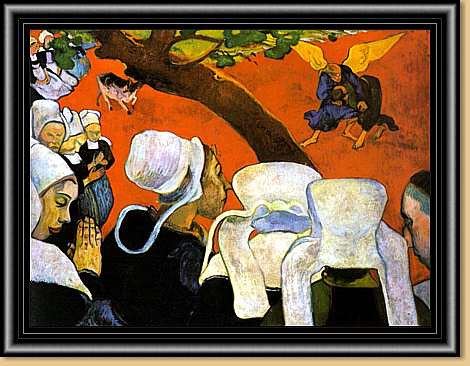Sunday, April 29, 2012
The Ottoman Empire (Dr. Steve Rosenthal)
Also - try to come with a question for Professor Rosenthal.
Tuesday, April 24, 2012
THE DECAMERON - THE MOVIE
http://www.youtube.com/watch?v=8LfDrDSgXZw
http://www.youtube.com/watch?v=LAIUCSJnCQA
Dr. Maria Frank's Lecture on Italian Culture
Also - come with a question to ask Dr. Frank in class.
Sunday, April 22, 2012
The Decameron - Day Two
In addition - please bring one question to class to share in the discussion.
Tuesday, April 17, 2012
The Decameron - Day One
Wednesday, April 11, 2012
Travel Literature (Dr. Amanda Walling)
Our other readings are from the Travels of Sir John Mandeville, a French book that claims to have been written by an English knight who traveled in Egypt, the Middle East, India, and China between 1332 and 1366. We can't be sure if he was the real author, or even how many of these places the author actually visited; he relies heavily on legends and magical tales. When you read Mandeville's account, think especially about how he describes foreign cultures (especially non-Christian ones), and about the kinds of details he thinks are worth sharing about foreign lands. In his stories, what is the appeal of the world beyond Western Europe for readers who would never see it?
Tuesday, April 10, 2012
Book of Good Love (Libro de buen amor) - DAY TWO
Sunday, April 8, 2012
Book of Good Love (Libro de buen amor) - DAY ONE
Wednesday, April 4, 2012
Songs of Holy Mary (Cantigas de Santa Maria)
Monday, April 2, 2012
More about Occitan
Songs of Holy Mary (Cantigas de Santa Maria)
Sunday, April 1, 2012
Troubadour / Trobairitz Poetry
Tuesday, March 27, 2012
Arabic Poetry
Sunday, March 11, 2012
Islamic Art
Ovid's 'Metamorphoses' (Day Two: Books 4 and 6)
Thursday, March 8, 2012
Mid-Term Exam
Monday, March 5, 2012
Ovid's 'Metamorphoses' (Day One: Books 1 and 3)
Wednesday, February 29, 2012
Plato's 'Republic'
Saturday, February 25, 2012
Odyssey (Day Four: Books 16-20; Day Five: Books 21-24)
Monday, February 20, 2012
Sunday, February 19, 2012
The Odyssey (Day Three: Books 11-15)
Trailer to Werner Herzog's "Cave of Forgotten Dreams"
Friday, February 17, 2012
Homer's Odyssey (Day Two: Books 6-10)
Tuesday, February 14, 2012
Homer's Odyssey (Day One: Books 1-5)
Monday, February 13, 2012
Sunday, February 12, 2012
Genesis (Day Five: Chapters 37, 39-50)
Thursday, February 9, 2012
Revised Syllabus
Tuesday, February 7, 2012
Gauguin's "Jacob Wrestling with the Angel (The Vision after the Sermon)"

Monday, February 6, 2012
Genesis (Day Four: Chapters 25-28, 32-33)
Wednesday, February 1, 2012
Genesis (Day Three: Chapters 12, 16-18, 21-23)
Noah's Ark and Green Porno
Tuesday, January 31, 2012
Genesis (Day Two: Chapters 4, 6-9)
Please answer three questions in all - two from Cain and Abel and the one from Noah.
CAIN AND ABEL: In a relatively short narrative, we have this myth concerning the first family after Eden - we have (1) the relationship between parents, children and siblings, (2) very distinct human passions related to this society – wounded pride, anger, jealousy, fear, dread; (3) violent death, crime and punishment, justice; (4) the beginning of agriculture and settlements, the arts and the city; (5) the first attempt at religion (sacrifices, relationship between humans and something greater than they are).
1. How do you see two or more of these themes working together within the story?
2. The myth seems to set up Abel as innocent (he is unable to defend himself and yet left unprotected by God). What might the story say about justice? How might the story be a kind of 'set-up' against Cain from the beginning (from his point of view)?
3. Analyze the conversation between God and Cain. What do you make of the phrases "Am I my brother's keeper?" and "Your brother's blood cries out to me from the soil"? (Remember - Cain is a farmer - linked to the soil).
4. What do you make of the mark of Cain? Is this an ambiguous mark? Is it unsettling to have the divine as someone / something that protects a murderer?
5. Why do you think that civilization (the city, music, the arts, culture, etc.) rises from the family of a murderer? What might this imply about the nature of civilization?
NOAH: Whereas in chapters 1-2 we saw a deity who created, with this story we see one who calls for (near) total destruction of that creation. What are some themes that you find within this story that can help us with our continuing understanding of the text. What do you find problematic about this text that you find warrants further analysis / discussion?
Friday, January 27, 2012
Genesis (Day One: Chapters 1-3)
Thursday, January 26, 2012
Mediterranean Music at Trinity
In case you are interested, their website is:
http://www.roseensemble.org/
The concert will take place on Monday January 30, 2012, at 7:30 in Hamlin Hall. It is open to the public so you should bring anyone with an interest in music or in the middle ages and the Mediterranean.